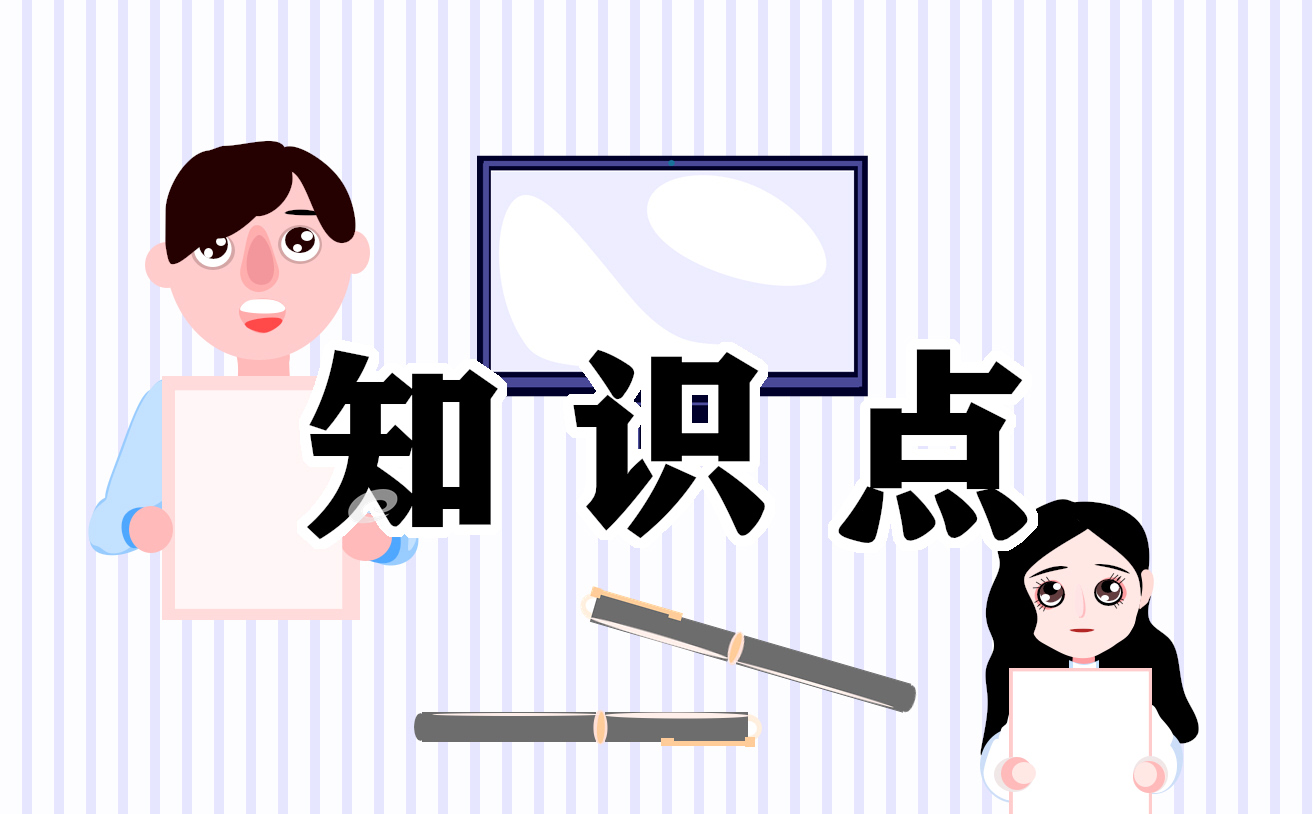习知识容易,转化成为能力很难;提出问题容易,得到圆满答复很难;点评别人容易,身临其境去做很难;指责同事容易,正确评价自己很难。下面小编给大家分享一些小学六年级知识英语,希望能够帮助大家,欢迎阅读!

小学六年级知识英语1
重点单词:
factory worker 工人 postman 邮递员 businessman 商人 police officer 警察policeman男警察policewoman女警察 fisherman 渔民 scientist 科学家 pilot飞行员 coach 教练singer歌手 writer作家 TVreporter电视台记者 actor男演员 actress女演员 artist画家 teacher老师 doctor医生 nurse护士 driver司机farmer农民 cleaner 清洁工 dancer舞者 football player z足球运动员
家庭成员单词
father=dad 爸爸 mother 妈妈 sister 姐姐(妹妹) brother哥哥(弟弟)
aunt 阿姨(姑姑)uncle叔叔(舅舅)cousin表(堂)姐(妹)/哥(弟)
反义词:
happy 快乐的——sad 悲伤的
重点句子:
1. What does your mother do? 你妈妈是做什么的?
2. She is a TV reporter. 她是电视台记者。
3. Where does she work? She works in a car company. 她在哪工作?她在汽车公司工作。
4. How does she go to work? She goes to work by bus. 她怎样去工作?她坐公交车工作。
5. Is your father a postman ?你的爸爸是邮递员吗?Yes, he is . (是的,他是)No ,heisn’t.(不,他不是)
6.Where does she work?她在哪里工作?She works at a university. 她在大学工作。
7. H e is good at playingfootball. 他擅长踢足球。
8. If you like sports, you can be a coach.如果你喜欢运动,你就有可能成为一名教练。
重点知识:
1. 在表达某人职业的时候别忘了在职业前面加a/ an. 当单词首字母是元音字母(a,e,i,o,u)的时候,要用an。例如:She is ananctress.
2. What’s wrong? 怎么啦= what’s up ?
I’m ill. 我生病了。
重点短语:be afraid of… 害怕…….
Eg: I’m afraid of him.
beangry with sb… 生某人的气 eg: I’m angry with mymother.
小学六年级知识英语2
重点单词:
pen pal笔友 riding a bike(ride)骑自行车 diving(dive)跳水 hobby爱好watch(watches)TV看电视 playing the pipa(play)弹琵琶
listening to music (listen )听音乐drawing pictures (draw)画画 =painting(paint)
climbing mountains(climb)爬山 playing (play)sport 做运动
play basketball 打篮球 play football 踢足球live (lives) in Beijing居住在北京 go (goes)to work去上班 go (goes) to bed睡觉 go (goes) home回家 teach(teaches) English教英语 read(reads) newspapers读报纸 go hiking 远足 study Chinese 研究中文 cook Chinese food 做中国食物 doword puzzles 猜字谜
重点句子:
1. What’s your hobby? 你的爱好是什么?=W h at is your hobby?
2. What are your hobbies? 你的爱好是什么?
3. I like reading stories.我喜欢看故事书。
4. He likes collecting stamps, too. 他也喜欢集邮。
5. Does she teach English? 她是教英语的吗?Yes, she does. No, she doesn’t.
6.Do you like English ? Yes, Ido. No, I don’t.
7.My name is John.我是约翰。His name is Zhang Peng.他是张鹏。Her name isAmy.她是艾米。/
8. What are you doing? 你正在做什么?
I’m writing an email to mynew pen pal. 我正在给我的新笔友写信。
重点知识:
1. 爱好一定要加ing,同样的,当看到like或者likes的时候,后面的动词一定要加ing,例如:我喜欢游泳:I likeswimming.
2. 当主语是he, she,it以及能用这三个词代替的所有的词我们叫做第三人称单数,后面的动词要加s,例如:I like diving. Helikes diving. She likesdiving. 人名一定是第三人称单数。
3. Does开头的问句回答只有两个,肯定回答:Yes, she/ he/ it does. 否定回答:No, she/ he/ itdoesn’t. 看到does,后面的动词一定要用原形!!!
小学六年级知识英语3
重点单词:
take a trip旅行 read a magazine读一本杂志 go to the cinema去看电影 this morning今天上午this afternoon今天下午 this evening今天晚上 next week下个星期 tomorrow明天 tonight今晚 busy忙碌的go home回家 post card明信片 comic book漫画书 newspaper报纸 dictionary字典 plant trees种树
重点句子:
1. What are you going to do on the weekend? 周末你将要做什么?
2. I’m going to visit my grandparents this weekend. 我将要去拜访我的祖父母。
3. I’m going to have a busy weekend! 我将要度过一个忙碌的周末。
4.I’m going to the supermarket with my mother. 我将要和我妈妈去超市。
5. Where are you going this afternoon? 今天下午你将要去哪?
6. I’m going to the bookstore. 我将去书店。
7. What are you going to buy? 你将要买什么?
8. I’m going to buy a comic book. 我将要去买一本漫画书。
9. When are you going? 你将什么时候去?
10. I’m going at 3 o’clock. 我将三点钟去。
11.What are you going to be? I’m going to be a policeman.你将要成为什么样的人?我将要成为一名警察。
重点知识:
1.时间往往放在句子的末尾。例如:What are you going to do this evening?
2.go to school去上学,go to work去上班, go to thecinema去看电影,go后面都要有to,但是要注意“回家”这个词组是:go home,中间绝对没有to。
3.with: 和,后面往往跟人。例如:I’m going to play footballwith my friends.我将要和我的朋友一起去踢足球。
4.疑问词:where:哪里(地点) what:什么(东西,事情或职业) when:什么时候(时间) how:怎么样(交通工具) who:谁(人)why:为什么(答句中有because)
小学六年级知识英语4
重点单词:
where哪里 how 怎样 can能够 near近的 ask 问 tell 告诉 far远的 science科学 hospital 医院museum 博物馆 postoffice 邮局 library图书馆 bookstore 书店
usually通常 sometimes有时候 often 经常 know知道 near旁边 next to旁边(比near更近) crossing十字路口 turn left 向左转 turn right 向右转 go straight直走 in front of在…的前面behind在...的后面
重点句子:
1. How do you go to school? 你是怎样去上学的?
2.where is the restaurant? 餐馆在哪里?
3. Usually I go to school on foot. 我通常走路去上学。
4. Sometimes I go by bike. 有时候我骑自行车去。、
5. 问路之前,出于礼貌,我们要说“Excuse me”与后面的句子要用标点符号隔开。
6. Look at the traffic lights, remember the trafficrules. 看着交通灯,记住交通规则。
7. Stop at a red light. Wait at a yellow light. Go at agreen light.红灯停。黄灯等一等。绿灯行。
8. Red means stop, yellow means wait, green means go.红色的意思是停止,黄色的意思是等待,绿色的意思是通行。
9. How can I get to the park? 我该怎样到达公园呢?
10. You can go by the No. 15 bus. 你可以坐15路公交车去。
重点知识:
1. 坐某种交通工具用by,例如:by bike, by train。而走路用 “on” 例如on foot.
2. 国家名字,地方名字第一个字母要大些:例如:Canada加拿大, China中国, America美国, England英国,Australia澳大利亚
3.频度副词是表示做的次数多少的词语。从多到少依次排列为:always总是,usually通常,often经常,sometimes有时候,never从不。频度副词可以放在句首,也可以放在人称后面。例如:UsuallyI go to school by bus. = I usually go to school bybus.
4. near近的,far远的。这两个词是一对反义词。注意:not near= far, not far = near.
5. 时间前面用at. 例如:在三点钟:at 3 o’ clock.
6. 交通灯traffic lights,交通规则:traffic rules。这大部分的国家都是靠右行驶的:drivers drive on theright side of the road. 记住England and Australia,drivers drive on the left sideofthe road.英国和澳大利亚,司机是靠左行驶的。
7. on foot= walk, 都是走路的意思,但是用法不同,on foot用在句子末尾,而walk用法与go相同,可以代替go的位置。例如:走路回家:walk home 走路去上学:walk to school 走路去上班 walk to work 走路去医院walk to thehospital
小学六年级知识英语5
重点单词:
by bike骑自行车 by bus坐公车 by train坐火车 by plane坐飞机 byship坐轮船 by subway坐地铁
by taxi 乘出租车 on foot= walk 走路
Excuse me打扰一下 please请 buy买 want to想要 a pair of一双 get on上车 get off下车 turnleft左转 turn right右转 am上午 pm下午 now现在 look for寻找 top停止 wait等待 get to到达 driver司机must必须
重点句子:
1. Let’s go to the nature park,让我们一起去公园吧!
2. How do we get there?我们怎样到达这里?By bus乘公交。
3. The park is over there,公园在那里。
4. Let’s go .我们一起出发吧!
5. Slow down and stop at a yellow light.黄灯等一等。
6. Stop and wait at a red light.红灯停。
7. Go at a green light.绿灯行。
重点知识:
1. Is there 开头的问句怎么回答呢?例如:Is there a cinema near here?只要把前两个词语的顺序换一下就可以了,肯定回答是:Yes, there is. 否定:No, there isn’t.
2. buy 和 by的区别,这两个词语发音相同,但是意思完全不同,by:乘,坐 buy:买
3. 地点名词前面一定要有the,例如:Where is the cinema?How can I get to the hospital?
4. 时间前面用at. 例如:在三点钟:at 3 o’ clock.;一段时间前面用for,例如:三分钟for 3 minutes.星期前面用on,例如:on Monday, on Tuesday, on Wednesday,on Thursday, on Friday, onSaturday, on Sunday.
5.在表达第几路公交车时,注意No. 的书写,N要大写,后面别少了一点!!!
6.在哪里上下车,在哪里左右转,都用介词at,例如:Get on/ off at the cinema. 在电影院的地方上下车。 Turn left/right at the bookstore. 在书店的地方左右转。
7. by the No. 12 bus= take the No. 12 bus. 坐12路公交车
小学六年级知识点英语相关文章:
★ 小学六年级英语学习方法和技巧大全
★ (PEP)小学六年级英语上册知识汇总
★ 小学六年级英语语法知识点汇总
★ 六年级英语语法知识点汇总
★ 小学一到六年级英语重点知识归纳
★ 六年级英语知识点归纳总结
★ 六年级英语知识点大总结
★ 六年级三大英语句型知识点
★ 1至六年级英语知识点梳理
★ 小学六年级英语总复习方法
上一篇:九年级上册英语第二单元知识点总结
下一篇:八年级语文下册知识点总结2022






